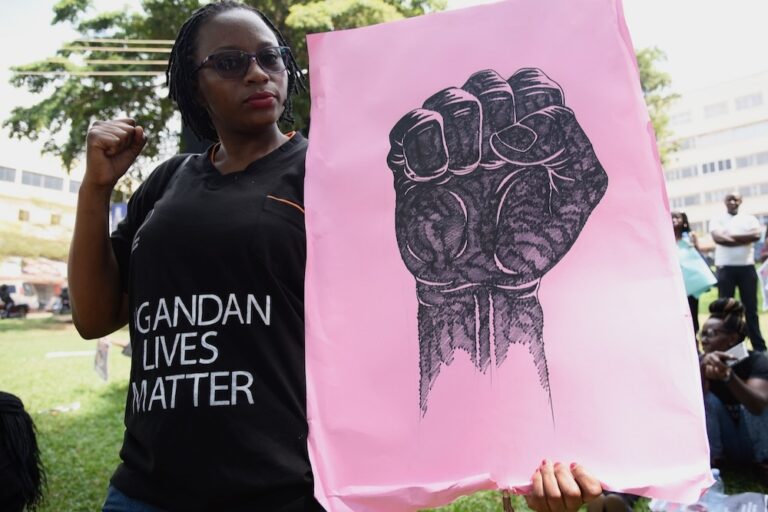(HRNJ-Uganda/IFEX) – Kampala, 18th/May/2012 – The government has acknowledged that the on-going Subscriber Identity Module (SIM) card registration exercise is characterized by mistakes. The ICT minister, Dr Ruhakana Rugunda said that much as the process could not be halted, he realized there were a number of loopholes in the exercise. He was meeting Human Rights […]
(HRNJ-Uganda/IFEX) – Kampala, 18th/May/2012 – The government has acknowledged that the on-going
Subscriber Identity Module (SIM) card registration exercise is
characterized by mistakes. The ICT minister, Dr Ruhakana Rugunda said that
much as the process could not be halted, he realized there were a number of
loopholes in the exercise.
He was meeting Human Rights and media development organizations under the
thematic cluster on Freedom of Information and Expression (FoI-E). They
included Human Rights Network for Journalists-Uganda (HRNJ-Uganda), Panos
Eastern Africa, Independent Media Council of Uganda (IMCU), Human Rights
Network-Uganda (HURINET-Uganda) and Uganda Media Development Foundation
(UMDF) at the ICT ministry at Social Security House in Kampala.
He hailed the cluster for raising what he termed ‘very important issues’
and the initiative by the members to guide government, but fell short of
halting the process for fear of terror attacks. “I see no rationale to halt
the registration process. I prefer to move faster to correct the mistakes.
The terrorists are moving faster; when you delay you will be caught up.” he
said in defense of the exercise.
This exercise is under the directive of the Uganda Communications
Commission (UCC) citing security concerns. It commenced in March 2012 and
is expected to end in March next year. Unregistered SIM cards will be
deactivated.
The cluster members who were represented by Wokulira Ssebaggala and
Catherine Anite (HRNJ-Uganda), Haruna Kanaabi and Mathias Mulumba (UMDF)
recommended that government should draft a law to regulate the collection,
processing, keeping, use and disclosure of certain information relating to
individuals in order to protect and secure personal information.
They also want government to put in a provision for a data protection
commission tasked with complaints, proceedings and remedies therein should
be formed and selected on the basis of their expertise.
They said that it would be imperative if Uganda borrowed best practices
from countries that have enacted data protection Laws.
“It is risky to register without a law to protect the data.” Rugunda noted,
adding that the government will move quickly to enact the law. He was
surprised on learning that there was no standard form for registering the
SIM cards. He is to organize a meeting between his technical staff and the
cluster over these concerns but emphasized that government will not halt
the exercise.
Other matters discussed in this meeting also included the new Uganda
Communications Regulatory Authority Bill 2012 which seeks to consolidate
the Electronic Media Act and the Uganda Communications Commission Act. It
is intended at improving the running, management and growth of the
broadcasting and telecommunications industries which are growing very fast.
However, this law in the making should be refined and improved upon to
conform to international standards and best practices of broadcasting and
telecommunication regulation such that it does not curtail freedom of
speech, expression, media and other freedoms.
The bill should be refined to meet the principles of legislative drafting
to avoid causing confusion and conflict among the industry players, the
regulator, government and the public. The members handed over to Rugunda a
copy of the analysis of this Bill.
“This is a very healthy dialogue with government aimed at proposing laws
that would lead to protection of personal data in the confines of
government and other agencies and also ensure that irregular procedures in
collecting this information are dealt away with. The rights and freedoms of
the media and the general population should not be impeded under security
guise. As a cluster, we are moving fast to look at the laws and bills which
directly affect the freedoms and rights.” Said HRNJ-Uganda Programme
Coordinator Wokulira Ssebaggala.


